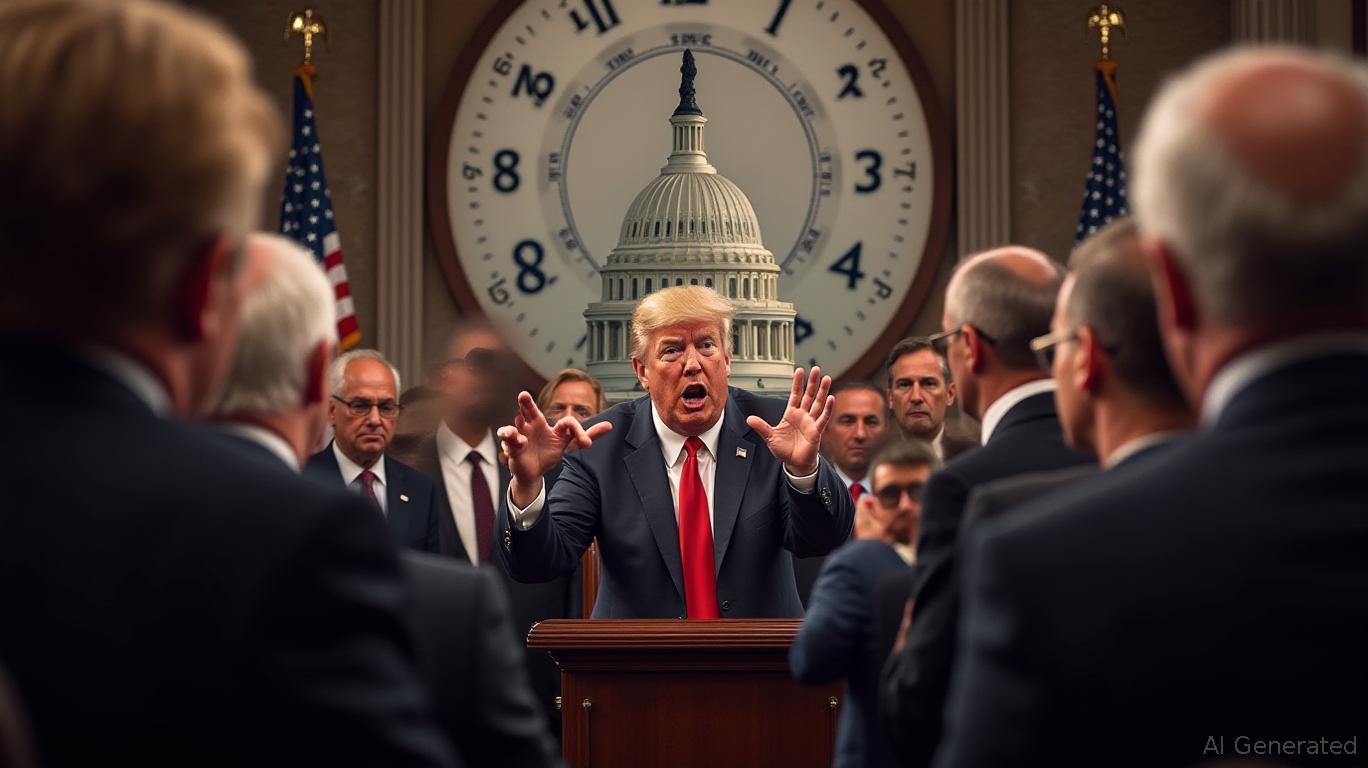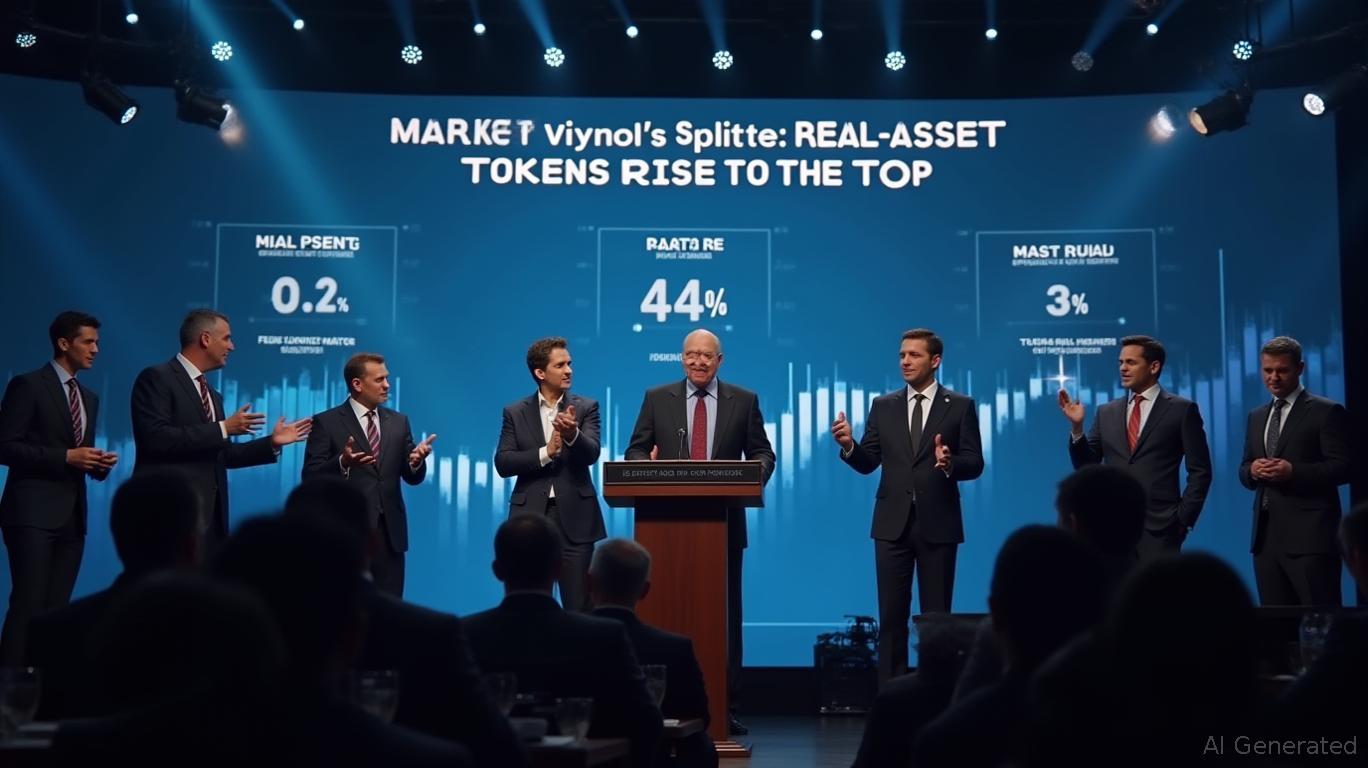Partisan Dispute on Healthcare Subsidies Leaves Government Stalled in 35-Day Shutdown
- U.S. government shutdown hits 35 days, matching 2018-2019 record due to partisan disputes over healthcare subsidies and funding. - Democrats demand ACA premium subsidy extension, while Republicans oppose tying funding to pandemic-era programs, causing unpaid workers and service disruptions. - Economic risks grow with potential $1.4B losses if shutdown extends, as military pay and food assistance programs face critical strain. - Senate shifts toward seeking 2026 funding extension after failed short-term b
On November 4, 2025, the U.S. government shutdown reached its 35th day, equaling the longest in American history, as the standoff between Democrats and Republicans shows no sign of resolution. The impasse, rooted in disputes over federal funding and the continuation of pandemic-era healthcare subsidies, has resulted in hundreds of thousands of federal employees missing paychecks and has interrupted essential government services. As the Senate prepares for a 14th vote on a temporary funding measure supported by Republicans, both parties remain firmly opposed, raising concerns about economic consequences and increasing public dissatisfaction.
This shutdown echoes the 35-day closure of 2018-2019, which was sparked by a disagreement over then-President Donald Trump’s request for $5.7 billion to build a border wall. The current deadlock arises from Democrats’ insistence on extending Affordable Care Act (ACA) premium subsidies, set to expire at the end of December, before agreeing to any funding bill. Senate Majority Leader John Thune, R-S.D., admitted that the November 21 deadline in the House-approved bill is no longer realistic, indicating a move toward a more extended funding plan. “That date is off the table,” Thune remarked, expressing willingness to consider funding the government into early 2026, as reported by an

The financial impact continues to grow. The Congressional Budget Office projected that a shutdown lasting four weeks could cut fourth-quarter GDP growth by one to two percentage points, with losses potentially reaching $1.4 billion if the closure extends to eight weeks, according to
Senate Minority Leader Chuck Schumer, D-N.Y., and other Democrats have characterized the standoff as a matter of ethics. “Americans are facing a healthcare crisis unlike anything we’ve seen before,” Schumer stated, accusing Republicans of putting political interests ahead of the public good. Republicans, on the other hand, claim that linking funding to ACA subsidies is a bargaining tactic. “The casualties of the Democrats’ shutdown are mounting,” Thune commented, calling for an end to what he described as “irresponsible” Democratic obstruction, according to
Past shutdowns, such as the 21-day closure in 1995-1996 and the 16-day shutdown in 2013, illustrate the growing frequency of these crises in a deeply divided Washington. The current impasse has already outlasted the 1995-1996 shutdown and now matches the 2018-2019 record. With the Veterans Day break approaching and the political landscape shifting ahead of mid-term elections, pressure on lawmakers is intensifying. Still, with no agreement in sight, the ongoing shutdown underscores the difficulties of governing amid increasing polarization, as highlighted by
Disclaimer: The content of this article solely reflects the author's opinion and does not represent the platform in any capacity. This article is not intended to serve as a reference for making investment decisions.
You may also like
Bitcoin News Today: "Cryptocurrencies Backed by Tangible Assets Surpass Speculative Coins Amid Market Divergence"
- La Culex (LCX) surges over 15% as tokenized real-asset demand grows, contrasting Pudgy Penguins' 8% drop due to sustainability doubts. - Brett (BRT) falls 12% amid regulatory scrutiny, mirroring broader crypto weakness with BTC/ETH below 50-day averages. - CleanSpark expands Texas AI data center capacity by 28%, reflecting crypto miners' pivot to AI workloads for revenue stability. - Mixed corporate earnings highlight crypto market duality: Asure's 24% revenue growth contrasts Corcept/CRC's underperforma

OpenAI’s Almost-Merger with Anthropic Reveals Leadership Disputes and Governance Issues
- OpenAI's near-merger with Anthropic emerged after Sam Altman's 2023 ousting, with board members pushing a deal led by Anthropic despite Ilya Sutskever's opposition. - Anthropic projects $70B revenue by 2028 via B2B expansion, contrasting OpenAI's $115B+ projected losses through 2029 from infrastructure costs. - Elon Musk's lawsuit accuses Altman of "stealing a non-profit," while OpenAI defends its $130B for-profit restructuring as mission-critical. - Governance flaws revealed include rushed decisions and

Ethereum News Update: Crypto’s ‘Invincible’ Whale Suffers $39 Million Loss Amid Bearish Market Shift
- A "100% Win Rate" crypto whale liquidated BTC/ETH/SOL longs, incurring $39.37M losses amid a $1.1B market selloff. - Ethereum fell below $3,400 and Bitcoin neared $100,000, triggering 303,000 trader liquidations in 24 hours. - "Abraxas Capital" increased BTC/ETH/SOL short positions to $760M, betting on prolonged bearish trends. - Analysts warn of deeper selloffs if institutional selling or macroeconomic risks intensify, with RSI nearing oversold levels.

Investors Turn to Tangible Crypto Assets as Speculative Phase Draws to a Close
- RentStac (RNS) offers tokenized real estate with $1 price target, distributing rental income to token holders via blockchain. - Presale raised $412k+ by October 2025, offering 100% token bonuses to early investors seeking "real yield" over speculation. - Project aligns with growing RWA tokenization trends, aiming to bridge crypto liquidity with tangible assets through automated buybacks and transparent contracts. - Critics highlight real estate and regulatory risks, but proponents cite security measures
